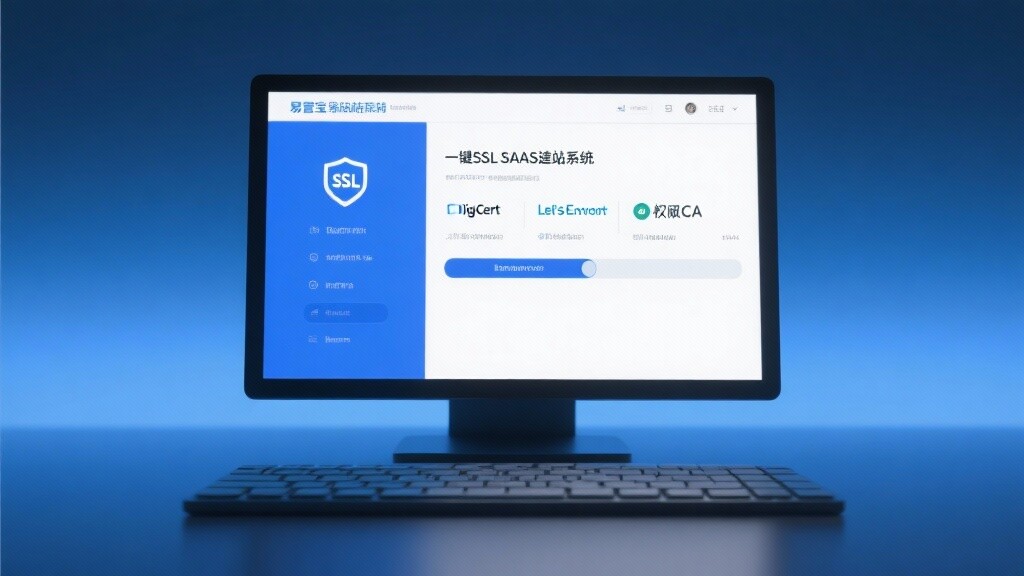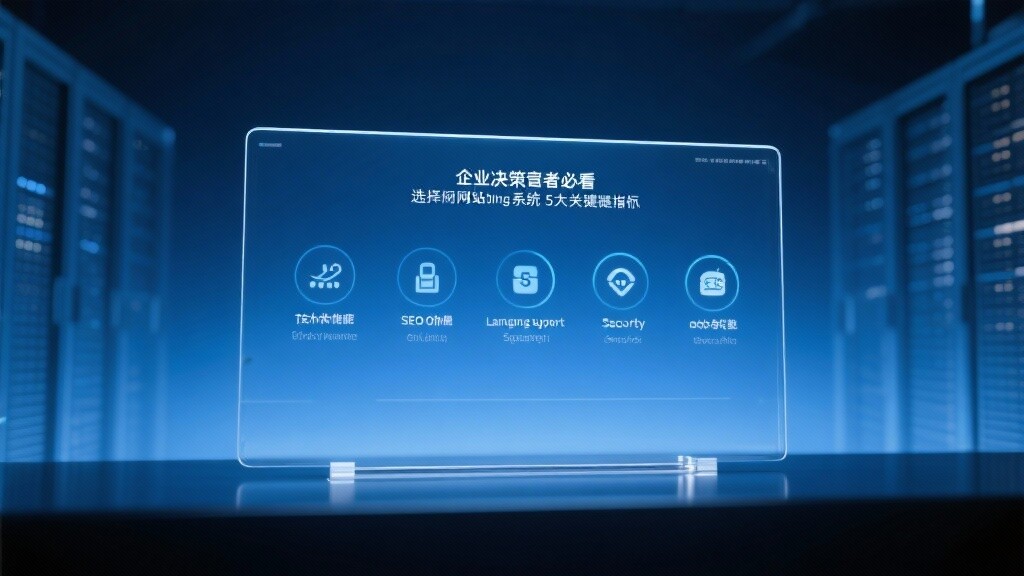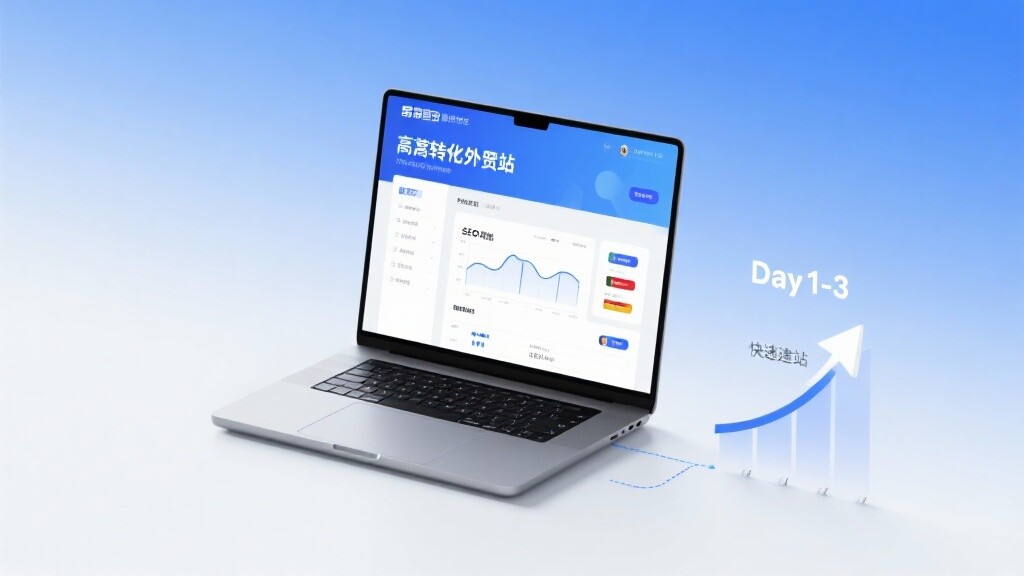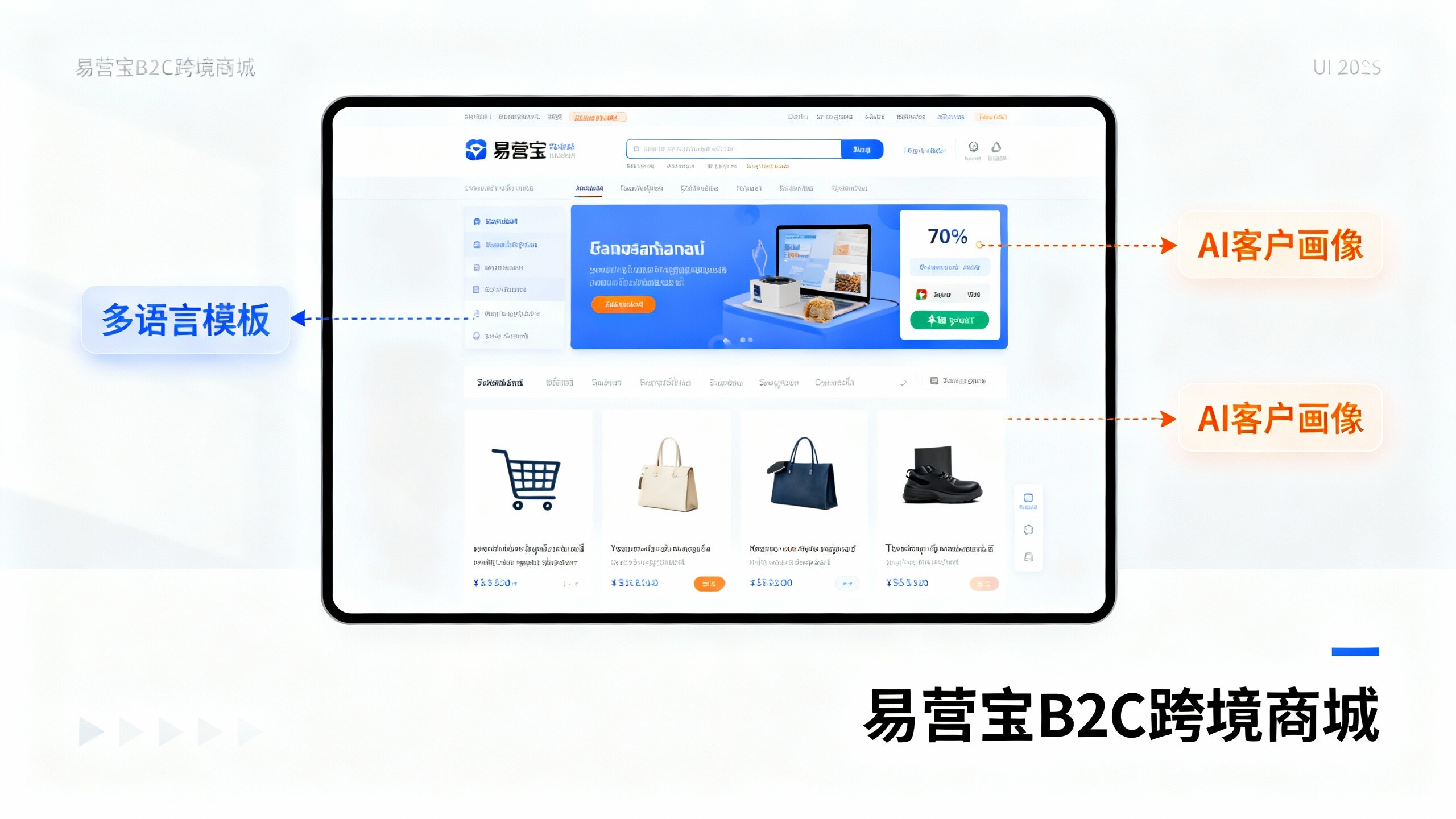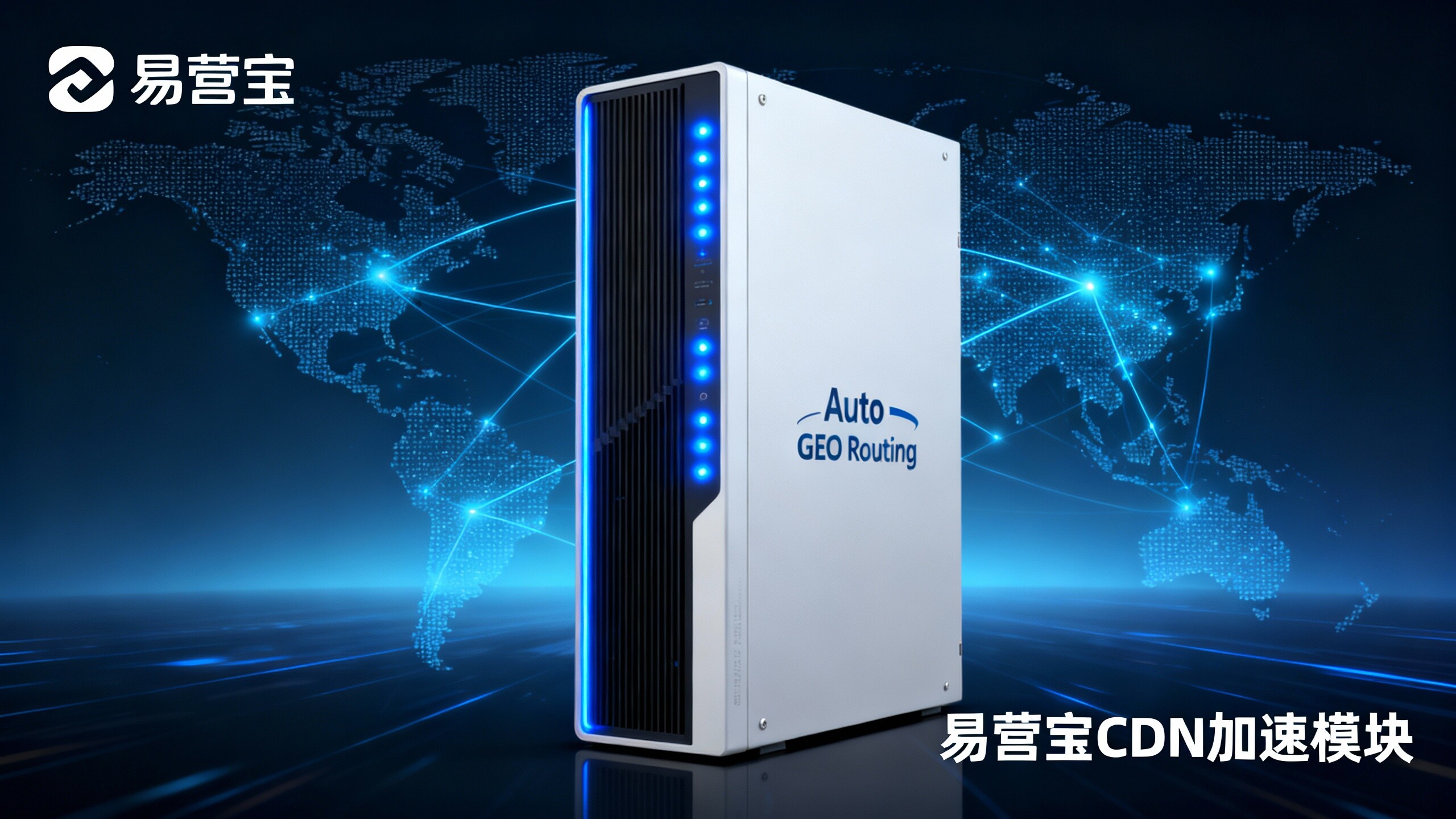Definition of global CDN acceleration: An intelligent content distribution system at the network edge.
Global Content Delivery Network Acceleration (CDN) refers to the use of a globally distributed network of edge servers to cache and distribute a website's static resources (such as images, CSS, and JavaScript files) and dynamic content to nodes physically closest to the user. This way, when a user requests access to the website, there's no need to connect to a distant origin server; instead, content is retrieved from the nearest edge node , significantly reducing data transmission time and network latency , resulting in extremely fast website access .
The core elements of CDN acceleration:
Edge PoPs (Points of Presence): Data centers located around the world, responsible for storing and distributing cached content.
Caching mechanism: intelligently determines which content can be cached, for how long, and updates it in a timely manner to ensure content freshness.
Load Balancing & Routing: Intelligent algorithms route user requests to the node with the best current network conditions and the closest geographical location .
Content type: Primarily for static files (such as images, videos, JS, CSS), but advanced CDNs also support dynamic content and API acceleration .
The essence of global CDN acceleration is to eliminate network bottlenecks and ensure an ultimate user access experience through a "space-for-time" strategy.
The Development History of Global CDN Acceleration: From Solving Congestion to Empowering Global Applications
The history of global CDN acceleration is the evolution of Internet technology from "usable" to "easy to use", and then to "extremely fast and secure".
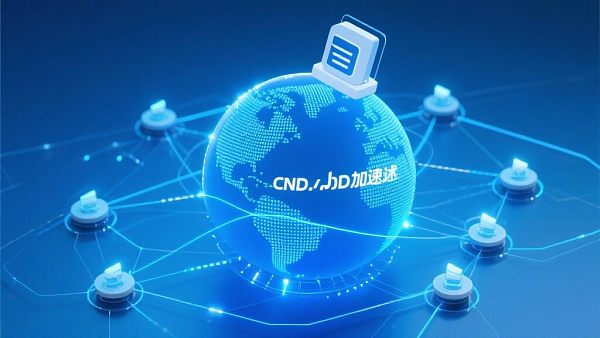
1. Early Stages: Content Delivery and Network Congestion Resolution (1990s-2005)
Technology Origin: The concept of CDN emerged in the late 1990s, initially aimed at solving network congestion problems that occurred when centralized servers faced large-scale traffic.
Representative companies: Akamai and others became early leaders.
Limitations: Primarily used for caching simple static content, with limited functionality.
2. The Era of Video Streaming and Rich Media (2005-2015):
Demand-driven: With the rise of video platforms such as YouTube and Netflix , higher demands are being placed on the stability and speed of video streaming .
Technology Upgrade: CDNs are starting to optimize streaming media transmission protocols , providing services such as bandwidth optimization and protocol conversion to ensure fast and smooth video loading.
3. Cloud computing, globalization, and security integration (2015-2020):
Technology integration: CDN is deeply integrated with cloud computing and edge computing , resulting in an explosive growth in the number of nodes and coverage of more countries and regions.
Security Integration: With the increase in network attacks, CDNs have begun to integrate WAF (Web Application Firewall) and DDoS protection functions, becoming the first line of defense for website security .
4. Core Web Vitals and Dynamic Acceleration (2020-present):
Performance standards: Core Web Vitals has become a core SEO ranking metric, and CDNs are shifting their focus to optimizing **LCP (Maximum Content Rendering) and INP (Interactive Latency)**.
New trend: Focus on breakthroughs in accelerating dynamic content and API delivery , leveraging edge computing technology to process some business logic at edge nodes, further enhancing user experience.
The fundamental principle of global CDN acceleration: intelligent routing and cache hit rate.
The core technology of global CDN acceleration lies in how to intelligently direct user requests to the best nodes and maximize cache hit rate .

1. Intelligent DNS resolution and load balancing
How it works: When a user accesses your domain name, the request first reaches the CDN provider's DNS server . This DNS server doesn't simply resolve the data; it uses an intelligent algorithm .
Working mechanism: The algorithm takes into account factors such as the user's geographical location, network operator (ISP), current node load, and network latency from node to user , and dynamically points the resolution result to the edge node IP that is fastest and most stable for the user to access .
2. Cache hit and TTL control
Cache hit: If the content requested by the user (such as an image) is already on the edge node and has not expired , it is returned directly from the edge node. This is called a **"hit"** and is key to achieving ultra-fast access.
Cache expiration time (TTL - Time To Live): Operators control how long content is cached on edge nodes by setting the TTL . Static files can be set with a longer TTL to improve the hit rate; dynamic or sensitive content should be set with a shorter TTL or not cached at all.
3. Dynamic Content Acceleration (DCA) technology
Challenge: Traditional CDNs excel at accelerating static content, but dynamic content (such as API requests and user login data) must be processed back to the origin server.
DCA principle: By optimizing the back-to-origin link (e.g., using proprietary protocols or intelligent routing to avoid public network congestion) and edge computing (performing TLS/SSL handshakes, Gzip compression, and other calculations at edge nodes), the transmission and processing time of dynamic content is shortened.
4. Integrated security protection
WAF/DDoS: Edge nodes typically have built-in WAFs to filter common SQL injection and XSS attacks ; at the same time, due to the huge bandwidth of global CDNs, they can effectively disperse and absorb DDoS attack traffic, protecting the origin server's security.
Core Features and SEO Strategic Advantages of Global CDN Acceleration
Global CDN acceleration is not just a network technology, but a key strategy for improving SEO performance and global user experience.
1. Significantly improve Core Web Vitals performance
Features: CDN directly optimizes website loading speed and shortens server response time (TTFB) .
SEO Advantages: LCP (Maximum Content Rendering) is a core metric for CWV (Content Wrapper) and directly depends on loading speed. CDNs can boost LCP to an "excellent" level, thereby achieving better SEO ranking weight .
2. Improve global user experience and conversion rate (CRO)
Features: Ensures that users worldwide receive the same ultra-fast access experience as local users.
Business value: For every second the website takes longer to load, the bounce rate increases. , conversion rate decreased . CDN effectively reduces bounce rate and improves user satisfaction and inquiry/sales conversion rate by providing extreme speed.
3. Enhance website security and stability
Features: As a reverse proxy , CDN hides the real IP of the origin server and provides DDoS traffic scrubbing and WAF firewall .
Operational support: When subjected to cyberattacks or sudden high-concurrency traffic, CDN can distribute the pressure, protect the origin server , and ensure the website's continuous online presence and business stability .
4. Saves bandwidth costs for the source server.
Features: Most user requests are responded to by CDN edge nodes, and the origin server is only called when the cache is not hit .
Cost advantage: Significantly reduces outbound traffic and processing pressure on the source server, thereby saving bandwidth and server maintenance costs .
Deep Application and Strategic Deployment of Global CDN Acceleration
Professional CDN acceleration deployment requires fine-grained configuration based on the website type, traffic structure, and business objectives.
Optimization practices for advanced CDN deployment:
Customizable caching rules: Set different cache times (TTL) for different file types (such as logos, blog images, CSS) to achieve fine-grained management.
Compression optimization: Enable Gzip or Brotli compression on edge nodes to reduce file transfer size and further accelerate the process.
HTTP/3 Protocol Deployment: Enable the latest HTTP/3 protocol and leverage the QUIC protocol to improve data transmission efficiency and latency on mobile networks.
CDN-SEO Collaboration: Ensure that CDN settings (such as caching of robots.txt and sitemap.xml ) do not interfere with Google's crawler's crawling and indexing.
EasyCard: Your Global CDN Acceleration and Performance Optimization Expert
E-Creative's global CDN acceleration service is a systematic solution based on state-of-the-art edge networking technology, Core Web Vitals performance standards, and global SEO best practices . We are committed to selecting, deploying, and fine-tuning the CDN solution best suited for your global business .
CDN Solution Selection and Deployment: Based on your core markets (North America, Europe, Southeast Asia, etc.) and budget, we will select the most suitable **CDN provider (such as Akamai, Cloudflare, AWS CloudFront)** and perform professional deployment for you.
Core Web Vitals performance optimization: Focusing on LCP optimization , through technologies such as resource prioritization and key CSS preloading , we ensure your website achieves a **"Excellent" speed rating** globally.
Multi-region CDN load balancing: For enterprises that need to provide services across multiple regions, it enables intelligent load balancing and failover to ensure high availability.
Security hardening integration: Deploy WAF and DDoS protection configurations to ensure your website enjoys high speed while having bank-level security protection .
Dynamic acceleration and API optimization: We provide professional DCA deployment and API link optimization for e-commerce, SaaS and other websites with high requirements for dynamic data.
Choose EasyCard and let your global CDN acceleration become the ultimate guarantee for speed, security, and SEO ranking in the global market competition.
FAQ
1. How important is deploying a global CDN to accelerate my website's SEO ranking?
It is very important; it is a core optimization technique of Core Web Vitals.
Speed equals ranking: Google has incorporated page experience (especially Core Web Vitals) into its core ranking factors . CDNs significantly shorten TTFB and LCP, directly impacting your CWV score.
User experience signals: Improved speed reduces bounce rate and increases page dwell time; these positive user experience signals will in turn benefit SEO ranking .
2. Does CDN only accelerate static content? Can it also accelerate dynamic content (such as API requests)?
Traditional CDNs primarily target static content. However, modern CDNs can accelerate dynamic content through Dynamic Acceleration Technology (DCA).
DCA Principle: DCA does not cache the dynamic content itself, but optimizes the data link from the edge node back to the origin server , avoiding congestion points on the public network and using private protocols to accelerate transmission.
Results: Significantly reduced latency for dynamic interactions such as API response time, user login, and shopping cart updates.
3. After using CDN, how should I set the cache expiration time (TTL)?
The TTL setting should be determined based on the "frequency of change" and "importance" of the content.
Long TTL (e.g., 7 days or more): Suitable for resources that do not change frequently , such as logo images, CSS/JS library files, and font files. This maximizes cache hit rate.
Short TTL (e.g., 1 hour): Suitable for content that changes frequently , such as blog homepage thumbnails or product list data.
Non-caching: Suitable for user login information, shopping cart status, and highly sensitive API data .
4. Will deploying a CDN lead to the leakage of my origin server's IP address?
Professional CDN deployment is one of the best ways to hide the origin server IP.
Reverse Proxy: The CDN acts as a reverse proxy . Users only see the IP addresses of the CDN edge nodes; all traffic is forwarded through the CDN.
Source IP protection: The key lies in configuring the firewall . The origin server should only allow traffic from a list of IPs known to the CDN provider , and deny all other requests that directly access the source IP, thereby effectively protecting the source IP.
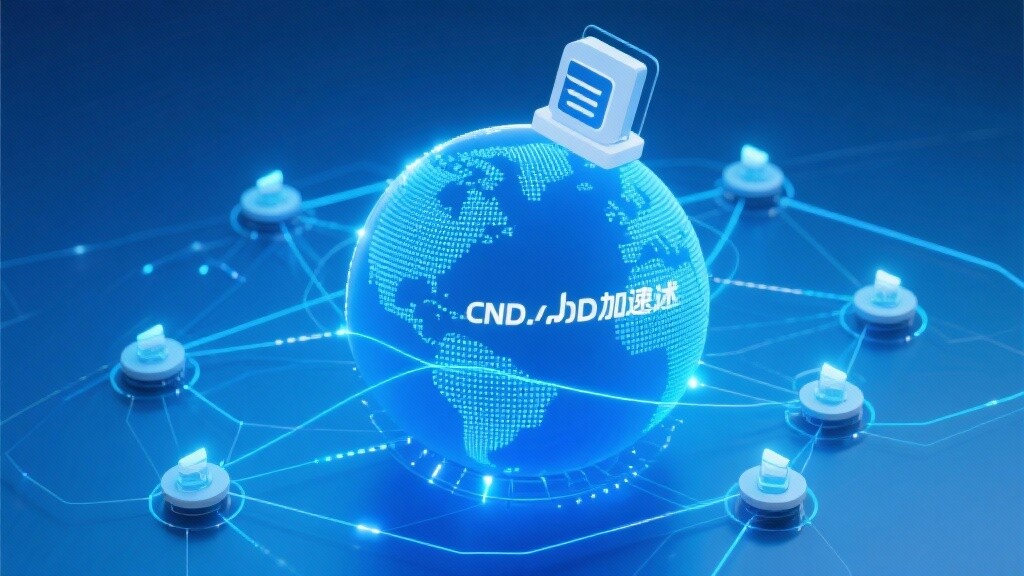
Customer Reviews
Mr. Zhang, CTO of a cross-border e-commerce platform
"Our users are located throughout North America and Europe, and website speed has always been a pain point. EasyCreative developed a global CDN acceleration deployment solution for us, employing multi-region CDN intelligent routing. After deployment, our Core Web Vitals LCP metric improved by 60% , and the average access speed for global users was reduced by 1.5 seconds . The most direct result was a decrease in website bounce rate." , the conversion rate on the checkout page increased. . CDN acceleration is a core investment for enhancing global e-commerce competitiveness.
Ms. Li, Marketing Director of a B2B industrial software SaaS platform
"SaaS platforms have extremely high requirements for API speed, and we were worried that CDN couldn't solve the dynamic acceleration problem. E-Creative Platform's experts customized a DCA (Dynamic Content Acceleration) solution for us and integrated WAF security protection . Now, our API response time has been reduced by an average of 400 milliseconds , greatly optimizing the user experience within the product. At the same time, the DDoS protection provided by the CDN gives us great peace of mind even under high concurrency traffic, significantly improving the stability and professionalism of our website."
![Not optimized for mobile? Your SEO ranking might be slipping away! Not optimized for mobile? Your SEO ranking might be slipping away!]() Not optimized for mobile? Your SEO ranking might be slipping away!This article provides an in-depth analysis of how mobile optimization impacts SEO rankings, introducing industry standards and optimization strategies, and demonstrates how EasyCMS AI website building system achieves perfect mobile optimization.
Not optimized for mobile? Your SEO ranking might be slipping away!This article provides an in-depth analysis of how mobile optimization impacts SEO rankings, introducing industry standards and optimization strategies, and demonstrates how EasyCMS AI website building system achieves perfect mobile optimization.![EasyStore SAAS Website Builder New Feature: One-Click SSL Certificate Deployment for Enhanced Security! EasyStore SAAS Website Builder New Feature: One-Click SSL Certificate Deployment for Enhanced Security!]() EasyStore SAAS Website Builder New Feature: One-Click SSL Certificate Deployment for Enhanced Security!This article details the one-click SSL certificate deployment technology in EasyStore SAAS Website Builder, covering HTTPS encryption principles, global CDN acceleration architecture, multilingual standalone site SEO optimization solutions, and more. Ideal for decision-makers and technical implementation teams in foreign trade enterprises.
EasyStore SAAS Website Builder New Feature: One-Click SSL Certificate Deployment for Enhanced Security!This article details the one-click SSL certificate deployment technology in EasyStore SAAS Website Builder, covering HTTPS encryption principles, global CDN acceleration architecture, multilingual standalone site SEO optimization solutions, and more. Ideal for decision-makers and technical implementation teams in foreign trade enterprises.![Slow corporate website? 3 optimization techniques to make your standalone site load lightning fast! Slow corporate website? 3 optimization techniques to make your standalone site load lightning fast!]() Slow corporate website? 3 optimization techniques to make your standalone site load lightning fast!Addressing the pain points of slow corporate websites, this article provides an in-depth analysis of three major optimization strategies: server cluster deployment, AI-driven code compression, and global CDN acceleration. Includes an exclusive speed-boosting solution from EasyYunbao's intelligent website building system.
Slow corporate website? 3 optimization techniques to make your standalone site load lightning fast!Addressing the pain points of slow corporate websites, this article provides an in-depth analysis of three major optimization strategies: server cluster deployment, AI-driven code compression, and global CDN acceleration. Includes an exclusive speed-boosting solution from EasyYunbao's intelligent website building system.![Must-See for Business Decision Makers: 5 Key Metrics for Choosing a Website Construction System Must-See for Business Decision Makers: 5 Key Metrics for Choosing a Website Construction System]() Must-See for Business Decision Makers: 5 Key Metrics for Choosing a Website Construction SystemThis article provides a detailed analysis of the 5 key metrics businesses should consider when selecting a website construction system, including technical performance, SEO optimization, multilingual support, security, and cost-effectiveness. It also presents real-world case studies from the EasyCloud platform to offer scientific decision-making references for corporate leaders.
Must-See for Business Decision Makers: 5 Key Metrics for Choosing a Website Construction SystemThis article provides a detailed analysis of the 5 key metrics businesses should consider when selecting a website construction system, including technical performance, SEO optimization, multilingual support, security, and cost-effectiveness. It also presents real-world case studies from the EasyCloud platform to offer scientific decision-making references for corporate leaders.![Client Case: How to Build a High-Converting Foreign Trade Website in 3 Days with EasyStore? Client Case: How to Build a High-Converting Foreign Trade Website in 3 Days with EasyStore?]() Client Case: How to Build a High-Converting Foreign Trade Website in 3 Days with EasyStore?This article uses real client cases to analyze in detail how EasyStore's intelligent website building system helps enterprises complete the construction of a high-converting foreign trade website within 3 days, covering core aspects such as the website building process, SEO optimization, social media marketing, and integrating product technical advantages with industry solutions.
Client Case: How to Build a High-Converting Foreign Trade Website in 3 Days with EasyStore?This article uses real client cases to analyze in detail how EasyStore's intelligent website building system helps enterprises complete the construction of a high-converting foreign trade website within 3 days, covering core aspects such as the website building process, SEO optimization, social media marketing, and integrating product technical advantages with industry solutions.![B2B foreign trade how to use social media marketing to improve the operating effect of independent station? B2B foreign trade how to use social media marketing to improve the operating effect of independent station?]() B2B foreign trade how to use social media marketing to improve the operating effect of independent station?Aiming at the digital marketing transformation needs of B2B foreign trade enterprises, it analyzes in detail the synergistic strategy of social media marketing and independent station operation, including platform selection, content creation, data-driven optimization and other modules, combined with the technological empowerment of AI intelligent station building and SEO tools.
B2B foreign trade how to use social media marketing to improve the operating effect of independent station?Aiming at the digital marketing transformation needs of B2B foreign trade enterprises, it analyzes in detail the synergistic strategy of social media marketing and independent station operation, including platform selection, content creation, data-driven optimization and other modules, combined with the technological empowerment of AI intelligent station building and SEO tools.![Global CDN acceleration how to help foreign trade B2B building station? Global CDN acceleration how to help foreign trade B2B building station?]() Global CDN acceleration how to help foreign trade B2B building station?This article analyzes in detail the application of global CDN acceleration technology in foreign trade B2B station building, including its working principle, advantages and actual cases. At the same time, combined with the functions of YiYingBao AI intelligent station building system, to provide enterprises with comprehensive station building and marketing solutions.
Global CDN acceleration how to help foreign trade B2B building station?This article analyzes in detail the application of global CDN acceleration technology in foreign trade B2B station building, including its working principle, advantages and actual cases. At the same time, combined with the functions of YiYingBao AI intelligent station building system, to provide enterprises with comprehensive station building and marketing solutions.![SEO Optimization Strategies for Global Partners of Foreign Trade Independent Sites SEO Optimization Strategies for Global Partners of Foreign Trade Independent Sites]() SEO Optimization Strategies for Global Partners of Foreign Trade Independent SitesThis article analyzes in detail the SEO optimization strategy of foreign trade independent station global partners, covering the technology, cases and practical skills to help enterprises enhance the competitiveness of the global market.
SEO Optimization Strategies for Global Partners of Foreign Trade Independent SitesThis article analyzes in detail the SEO optimization strategy of foreign trade independent station global partners, covering the technology, cases and practical skills to help enterprises enhance the competitiveness of the global market.
![EasyOperate B2C Cross-Border E-Commerce Platform & Independent Website EasyOperate B2C Cross-Border E-Commerce Platform & Independent Website]() EasyOperate B2C Cross-Border E-Commerce Platform & Independent WebsiteEasyStore B2C Cross-border E-commerce Independent Store is an intelligent website building and cross-border e-commerce integrated solution independently developed by EasyStore Information Technology (Beijing) Co., Ltd. The system is specially designed for small and medium-sized as well as large export enterprises, integrating 'website building, operation, marketing, advertising, and conversion' into one, helping enterprises quickly establish cross-border e-commerce independent stores to achieve brand globalization and global sales growth.
EasyOperate B2C Cross-Border E-Commerce Platform & Independent WebsiteEasyStore B2C Cross-border E-commerce Independent Store is an intelligent website building and cross-border e-commerce integrated solution independently developed by EasyStore Information Technology (Beijing) Co., Ltd. The system is specially designed for small and medium-sized as well as large export enterprises, integrating 'website building, operation, marketing, advertising, and conversion' into one, helping enterprises quickly establish cross-border e-commerce independent stores to achieve brand globalization and global sales growth.
The platform supports multiple languages, multiple currencies, and multi-channel marketing, with built-in AI intelligent translation and SEO optimization systems, suitable for mainstream markets such as Southeast Asia, Europe and America, Latin America, and the Middle East, assisting Chinese manufacturing enterprises in efficiently deploying international e-commerce strategies.![Global CDN Acceleration Empowering B2B Website for Foreign Trade Global CDN Acceleration Empowering B2B Website for Foreign Trade]() Global CDN Acceleration Empowering B2B Website for Foreign TradeAgainst the backdrop of digital transformation in global trade, foreign trade enterprises face the dual challenges of cross-border network latency and geographical information search (GEO) disparities. The 'Global CDN Acceleration Empowering B2B Website for Foreign Trade' solution launched by EasyYun is not just a technology to enhance webpage loading speed, but also a systematic project integrating search engine optimization (SEO) with GEO. By establishing multiple edge nodes worldwide, it ensures that overseas buyers can instantly access the corporate website regardless of their location, significantly improving the brand's first impression and inquiry conversion rate.
Global CDN Acceleration Empowering B2B Website for Foreign TradeAgainst the backdrop of digital transformation in global trade, foreign trade enterprises face the dual challenges of cross-border network latency and geographical information search (GEO) disparities. The 'Global CDN Acceleration Empowering B2B Website for Foreign Trade' solution launched by EasyYun is not just a technology to enhance webpage loading speed, but also a systematic project integrating search engine optimization (SEO) with GEO. By establishing multiple edge nodes worldwide, it ensures that overseas buyers can instantly access the corporate website regardless of their location, significantly improving the brand's first impression and inquiry conversion rate.





